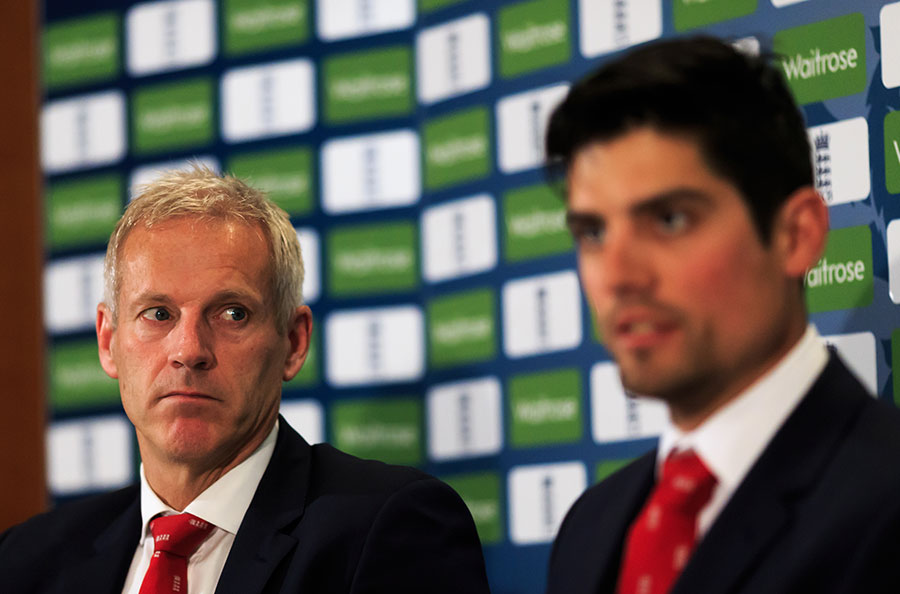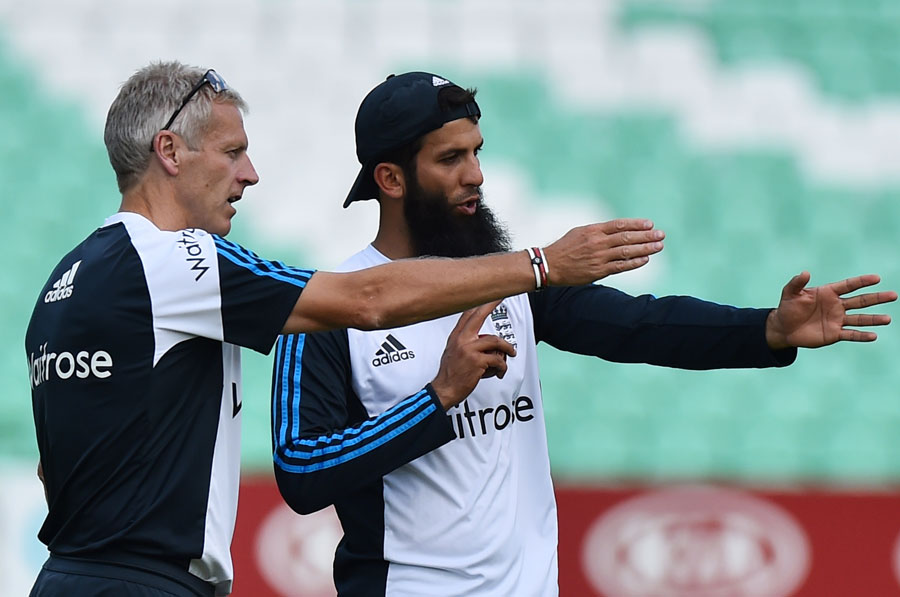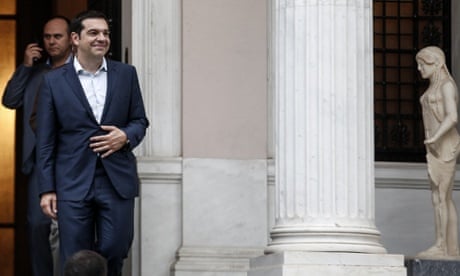Over at our friends
Being Outside Cricket, there have been some interesting discussions about the nature of the mainstream cricket press, its relationship with the cricketing public and its attitude to those of us ‘below the line’. You can read the pieces
here and
here.
At the risk of committing plagiarism, I thought I’d take the liberty of penning a few thoughts of my own. What follows is inspired by, not a response to, the thoughts of Lord Canis Lupus and The Leg Glance. I thank them for that inspiration, not to mention their wisdom and insight.
The misadventures of the cricket media are hardly new territory in our tier of the crickosphere. Many of the key points may already be very familiar to you, echoing hundreds of your own comments on both blogs during the last eighteen months. But we’ve not touched on the theme here on TFT for some time, and it’s worth updating our perspectives in the context of the here-and-now – the new mood of optimism and concord subtly washing over English cricket.
I believe there are three misconceptions about the nature of the cricket press. Firstly, I doubt all the principal correspondents have total editorial control over their copy. The editor is in charge of the paper, and beneath him or her is the sports editor. It’s they whom the correspondent is trying to satisfy, not only the reader. The bosses may ask for a particular editorial line, or at least a tone – upbeat, angry, patriotic, kick them while they’re down.
The space allocated for their reports will fluctuate according to the news agenda, with copy truncated by the sub-editors overnight if need be. If Jose Mourinho gets sacked by Chelsea, there will be less room for nuances about the third ODI. The words below the correspondent’s name will not always entirely be written by them.
That said, the more senior the hack, the more sovereignty they have. Mikes Selvey and Atherton, or Scyld Berry, are less likely to have their copy reworked than a junior reporter.
Secondly, the mainstream press do not write specifically for people like us, who read and write cricket blogs and follow the minutiae of every story. They aim at readers with a passing-to-serious interest in cricket, who have little spare time and probably read only a single paper. A city trader on the Tube. A van driver on his lunch-break.
This means complex stories get simplified – as happens in all branches of news. It also explains why journalists often put a postive spin on events, to the disgust of bloggerati sceptics. In their eyes, punters follow cricket for fun, as an escape from the drudgery of work. So hacks write about good news, and feats of derring-do, with an appeal to patriotism. They suspect too few readers are interested in the Byzantine plot-twists of ECB politics.
Thirdly, newspapers and websites (but not the BBC) are under no obligations to anyone. They are private publications, unsubject to statutory regulation which mandates fairness, balance, and specific editorial standards. If you don’t like a newspaper, so the logic goes, you don’t have to read it.
And we can’t always regard the cricket press as a uniform entity. Its exponents occupy a fairly broad spectrum, possessing a range of attitudes and approaches. Some have been more sympathetic than others to the laments of those below-the-line. A few have listened to, absorbed, and reflected our (often disparate) views.
All of this may sound like excuse-making. But there are a multitude of hefty ‘but’s. On the whole, the response of the established cricket media to the turmoil triggered on 4th February 2014 has fallen so far short of adequacy that no caveats amount to exoneration.
Newspapers and mainstream websites, along with broadcasters, enjoy many privileges. The ECB award them the status of ‘accredited’ media. This means their correspondents are appointed as the public’s eyes and ears, and receive seats in the press box, as well as interview access to players and staff, and off-the-record conversations with officials. Neither bloggers not readers are afforded such accreditation.
With privileges come responsibilities – chiefly, the duty to hold authority to account. You can’t have one without the other, especially when many papers regard themselves as ‘newspapers of record’. The inky press generally exudes a sense of entitlement and officialdom. “Because we’re the Daily X, we should be able to do y and find out z”. Once again, that right brings a responsibility.
With the Pietersen affair, the cricket media signally failed to hold the ECB to account. The ECB lied, and covered up their lies. It was as clear a case as you could imagine of misconduct and moral corruption by a public body. Yet this was barely explored and never properly investigated. Even material in the public domain was poorly studied. The ‘due diligence’ dossier passed by largely unremarked. Pietersen’s book was skim-read for lurid slurs while his serious accusations of ECB bullying and hypocrisy were ignored.
When vocal members of the public complained about this dereliction of duty, some pressmen replied by saying, ‘well we asked them, but they wouldn’t say’. This was a ridiculous excuse. In other spheres of news, the silence of authorities during a scandal becomes a story in itself. Front pages scream for answers. Newspapers ratchet up the pressure by cajoling third parties to provoke a response.
There were plenty of options available to the cricket press, had they been more tenacious and inquisitive. They could have highlighted the blatant contradictions in the ECB’s own testimony. They might have striven for a whistle-blower. They should have piled pressure on the DCMS, Sport England (who give the ECB funding), and England sponsors Waitrose and Investec, to demand answers.
Unless I’ve missed something, none of this happened. Some journalists tried. A few tried hard. But no one tried hard enough. Too many approached the saga with all the forensic analysis of the lazy-thinking, cliche-reliant golf club bar-bore. They couldn’t see past Pietersen’s bad-egginess to the real story, and misconceived the saga as a debate about Pietersen the man, instead of what it was, a powder-keg of ECB malpractice and mendacity.
The recent explosion of the FIFA scandal provides an instructive parallel. While there is no suggestion the ECB or its officials have engaged in financial corruption or bribery, the misconduct of each organisation has common strands.
Both the Pietersen affair, and the awarding of the 2022 World Cup to Qatar, gave off an overpowering miasma of fishiness. In each case a bizarre decision was taken but never convincingly explained. Attempts at scrutiny were met with bluster, evasion, and arrogance. What had actually happened was not what was officially presented.
The British press, rightly sensing the truth, refused to let FIFA off the hook. Uncowed by Sepp Blatter’s snarls, they plugged away tenaciously, month after month, even after the original story faded from the agenda. The Sunday Times led the charge, their detective work uncovering a web of brown envelopes emanating from Qatari-FA linked magnates. The hacks kept up the pressure, and eventually the levee broke. Look where we are now.
When Blatter appeared at press conferences and argued black was white, the hacks tore him to pieces. By contrast, what happened in cricket? In April 2014, when Paul Downton emerged from hiding at the Moores press conference, and met questions about Pietersen with a risible stew of lies and obfuscation, the cricket correspondent of The Independent famously gave us this.
----
----
If the likes of Brenkley or Mike Selvey had covered the FIFA story, we’d have probably read something like this:
It is time to cease asking such impertinent questions of Mr Blatter, a good man who has suffered much unwarranted personal abuse.
The FIFA scandal demonstrates more than simply what can be achieved by tireless journalistic inquisitiveness. It proves that tales about corrupt sports administrators can be major box office and appeal to passing readers. And it shows the merit of pressmen fighting for their stories. There must have been times during the FIFA investigation when editors lost confidence and threatened to pull the plug and save resources.
But back to Pietersen. Not all journalists failed to ‘get it’. But too many did. And no one closed the deal. Why?
It wasn’t because readerships lost interest in Pietersen, judging by the sheer quantity of copy written about him. In some instances, editorial diktats, from above, could provide partial explanation. But surely no editor would have turned down a juicy story about skulduggery in the corridors of Lord’s if offered up a scoop on a plate.
The real reasons are several and over-lapping. Some pressmen were lazy, others too gormless to realise what all the fuss was about. A few were deterred by fear of losing access to the inner circle. But many were simply out of their depth. It’s one thing to write about batting technique or line and length. It’s quite another to cut through a dense thicket of political intrigue and obfuscation. A previous career as a professional cricketer does not in itself an investigative journalist make.
A number of hacks were guilty of blatant bias, which took various forms. They had a personal dislike of Pietersen. They were friends or former team-mates of Paul Downton, Andy Flower, Graham Gooch or James Whitaker. Correspondents were often reporting on the conduct of people they’d known personally for years. Within this incestuous bubble, objectivity was impossible. Broadcast interviews were suffused with matiness. It was the equivalent of Alastair Campbell hosting Newsnight.
Just as influential was a subtler and less conscious form of bias. Many former players now inhabiting the press box are cut from the same cultural cloth as the ex-pros who became administrators: workmanlike county stalwarts who never amounted to much at international level. Even if they didn’t realise it, those correspondents were always likely to empathise with the likes of Downton and Whitaker, see things from their point of view, and fail to probe.
By the same token, they were unlikely to view the story either from the readers’ perspective, or Kevin Pietersen’s. Pietersen, with his vast success, huge wealth, brazen ambition, and buccaneering flamboyance, became everything they never were. Unable to relate to him, the ex-pros naturally viewed the ECB’s position as plausible, inhibiting their curiosity. And it wasn’t only about empathy. It’s easy to sense in their copy their feelings of distaste for Pietersen’s brash and unclubbable angularity. But it went further. They resented him for his success – a success which held up a light to their own mediocrity. It’s not going too far to suggest that in several cases their journalism was corrupted by envy.
In the main, the press allied to the establishment, a total inversion of their proper role. They sympathised with authority instead of putting it under the microscope. This response stemmed from an inherent emotional alignment, between media and ECB administrators, for reasons more profound than the limited emotional imaginations of ex-professionals.
Journalists, players, ex-players, ECB apparatchiks, and mandarins, together form the Cricketing Class. All these people have far more in common with each other than with any of the spectating public. They inhabit the same biosphere, sharing press boxes, hotel lobbies, bars and airport lounges around the world. They mutually provide each other with parameters and reference points of conduct, acceptance and vindication.
The incestuousness of the cricket circuit explains much of the Pietersen failure, but also plenty more. Many, especially the ex-players, have little experience of professional life beyond cricket. Insulated within this cosy cocoon, a tranche of the cricket press long since lost touch with the people they’re writing for – members of the public who follow cricket as a pastime.
When was the last time any of them paid their own money to attend an England match? Mike Atherton, say, probably hasn’t since he was a teenager. How many of them queue up for a soggy £7.50 burger, when they can rely on the courtesy sponsors’ lunch, while watching every ball of play from the best seats in the house, not only for free, but paid to be there.
This being the nature of their working lives, for years or decades on end, it requires conscious effort to see things from a punter’s point of view. This is no more than a journalist’s duty, but few achieve it.
So they often fail to share the public’s healthy scepticism of the motives of those in charge, exemplified by their constant talk of “good men”, “working hard”, in “difficult jobs”. They lose track of vital consumer issues central to the supporters’ experience, from ticket prices to free-to-air television coverage. Mainstream mediacrats can’t imagine a world where you must pay £80 for a ticket, or £400 a year for a TV subscription, from limited means, just to watch the game in the first place.
I suspect this also explains why virtually no-one in the press box understood, and barely discussed, the impact of the ECB’s “outside cricket” jibe. When push came to shove, the hacks also regarded themselves as “inside”, treasuring their insider status and mounting the barricades against the revolt of the great unwashed.
This explains their defensive hostility towards readers who dared complain about their misconceived analyses and flawed reporting. Rattled by the impudence of outsiders questioning their judgment, a few openly insulted their own audience, in what must be a British media first. Several of Mike Selvey’s Tweets became infamous
----
Every other branch of journalism realised this years ago. In cricket, though, few accepted the new deal and most were slow to realise how radically the interface has changed. Grandees raged against the dying of the light, firing arrows from their ivory towers towards the peasants storming the drawbridge. Their rhetoric of entitlement spookily echoed the ECB’s
‘outside cricket’ press release, with its bleats of “uninformed…unwarranted and unpleasant criticism”, which “attacked without justification” their “rationale…and integrity”. These patrician correspondents expected deference by virtue of their position alone, and met irreverence or opposition with pompous sanctimony and sour self-importance.
Others, however, were happy to engage with the public in a generous, constructive and cordial manner, on terms more – but never fully – equal. There lingered a loose sense of masonic, closed-shop sniffiness, which implied a belief that a human being is elevated to the rank of Approved Commentator on Cricket only through an elite process of divine selection.
In reality, cricket punditry is not akin to medicine or law, in which only hard-won professional qualifications confer authority. You can be right about English cricket even if you don’t have a badge on your lapel. This is ordained by the internal logic of the profession itself. If cricketers with no journalistic training can waltz into Fleet Street jobs, and journalists with no professional cricket experience can write about foot movement and bowling actions, why can’t any lifelong cricket follower have something equally useful to say?
The division between writer and writee was akin to clergy and laity. The common man could not be trusted to read the Bible in English because he was too simple to understand the word of God. Emblematic of a common press attitude were responses you could characterise as follows:
If you knew what I knew you would think the same. But I’m not going to tell you what I know. Why should I? In your position, you take my word for it. I am right because of who I am. You are wrong because you are on the outside. You are ignorant and uninformed, unlike me.
Such ripostes were usually fortified by reference to “sources”. In other words, the hack trumped a rebuke by claiming an insider had imparted to him an earth-shattering revelation, without ever saying exactly what. But what if that source was, without the hapless correspondent realising, telling them a load of complete bollocks? During the Pietersen nuclear winter, plenty of “sources” with agenda had every reason to spin a yard to their advantage. Because the press identified neither the sources nor the content, nothing could be scrutinised for its true worth. In the final reduction, anonymous vagaries were passed off as empirical evidence.
This story was not just about Pietersen, by any stretch. The competency of Paul Downton. The merits of Peter Moores. The legitimacy of Alastair Cook. Free-to-air television. Time and again, the agglomerate press circled their wagons of legitimacy and insisted they were right, whatever the evidence to the contrary. They branded as rabid freaks anyone foolish enough to reject their authority and disagree.
The more they lost touch, the more stubborn they became. And when opportunities arose to prove their good judgement, they gleefully taunted their own readers with boasts of one-upmanship. Desperate straws were clutched at. While thousands of sober, thoughtful critics, on BTL boards and Twitter, were dismissed as a baying, irrelevant, mob, a few hundred paying Ageas Bowl spectators who applauded an Alastair Cook innings were seized upon as representatives of the nation’s soul.
This wave of condescension and antipathy, directed by writers, and some broadcasters, at their own audiences, is unique in the history of British media. When bums start leaving seats, every other branch of journalism and entertainment responds by updating their product and raising their game. If X Factor viewers complain or switch off, Simon Cowell replaces the judges and refreshes the format. In cricket, if you don’t like what they do, they tell you to fuck off.
During the last few weeks, everyday life has calmed down. England’s exciting ODI performances, an opiate for the masses, have soothed the sceptic-hack relationship, at least for the time being. Victories are very difficult to disagree about, and the side’s upturn in fortunes since the removal of Cook and Moores has provided an (unacknowledged) vindication for the legions of BTLers who’d argued the duo’s inadequacy all along. Test cricket is another matter, though, and should Cook fail in the Ashes, trouble will flare up again.
In each of English cricket’s three estates – the administrators, the press, and the public – there is a decreasing appetite for conflict and strife, although this must not distract us from the vivid scrutiny the ECB’s conduct still demands. Contrary to what many journalists probably think, readers desire a positive relationship with the mainstream press. After all, we largely rely on them to provide our news from the front. They have access to people and events which we don’t. And ex-players will offer technical and experiential insights we may not spot with the naked eye.
But the relationship can only work if it’s bi-directional. In return for the vitals provided by journalists and pundits, we bring crowd-sourcing: millions of independent minds, views, and critical faculties, borne of millions of lifetimes spent watching cricket, playing cricket, and thinking about cricket. It’s a win-win. And to lay the first stone of this new Jerusalem, I suggest a little job-swap. A random punter should be granted a week in the press box, with all the trimmings. And during the same test, a Fleet Street correspondent should buy their own tickets and watch every ball from the stands, in the crowd. A change of scenery is good for the soul.

 Christopher Woodhead visiting Davenant Foundation School in Essex in 1998
Christopher Woodhead visiting Davenant Foundation School in Essex in 1998
 "I don't have regrets. I look back with quite a lot of pride" © Getty Images
"I don't have regrets. I look back with quite a lot of pride" © Getty Images Moores brought new faces into the England side during both spells in charge © AFP
Moores brought new faces into the England side during both spells in charge © AFP

